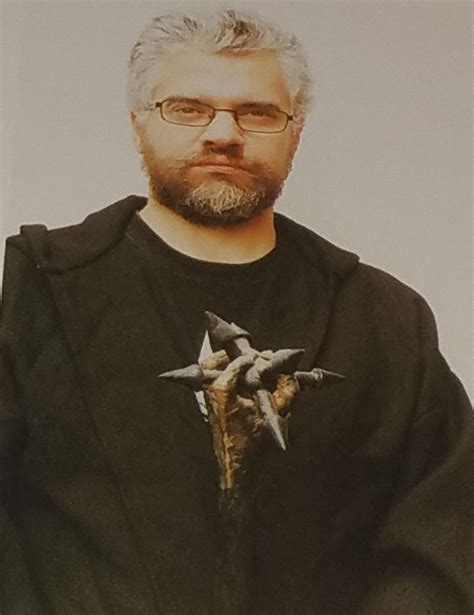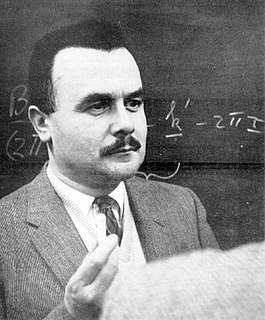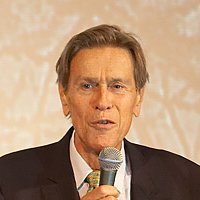A Quote by Sal Khan
You have all this education theory, and people try to make larger statements than maybe what their data would back up, because they've done these small experiments that are tied to a very particular case with a very particular implementation... theory definitely matters, but I think dogma matters less.
Related Quotes
Henceforth, whilst there are a great many theories and models proposed as to how, or why, magic works (based on subtle energies, animal magnetism, psychological concepts, quantum theory, mathematics or the so-called anthropomorphic principle) it is not a case that one of them is more 'true' than others, but a case of which theory or model you choose to believe in, or which theory you find most attractive. Indeed, from a Chaos Magic perspective, you can selectively believe that a particular theory or model of magical action is true only for the duration of a particular ritual or phase of work.
The theory of free speech, that truth is so much larger and stranger and more many-sided than we know of, that it is very much better at all costs to hear everyone's account of it, is a theory which has been justified on the whole by experiment, but which remains a very daring and even a very surprising theory. It is really one of the great discoveries of the modern time.
We are all trained to be data driven people, but no hard data exist about the future. Therefore, the only way to look into the future with any degree of accuracy is to use theory, statements of what causes what and why. If executives have the right theories in their heads, they can very quickly interpret market developments. They can identify what matters and why, and act accordingly. So we suggest decision-makers should start by gaining a deep understanding of the relevant collection of theories, and then be alert for signals that indicate certain types of developments.
If criticism has made such discoveries as to necessitate the abandonment of the doctrine of plenary inspiration, it is not enough to say that we are compelled to abandon only a "particular theory of inspiration..." We must go on to say that that "particular theory of inspiration" is the theory of the apostles and of the Lord, and that in abandoning it we are abandoning them.
For strictly scientific or technological purposes all this is irrelevant. On a pragmatic view, as on a religious view, theory and concepts are held in faith. On the pragmatic view the only thing that matters is that the theory is efficacious, that it 'works' and that the necessary preliminaries and side issues do not cost too much in time and effort. Beyond that, theory and concepts go to constitute a language in which the scientistic matters at issue can be formulated and discussed.
My opinion about Miller's experiments is the following. ... Should the positive result be confirmed, then the special theory of relativity and with it the general theory of relativity, in its current form, would be invalid. Experimentum summus judex. Only the equivalence of inertia and gravitation would remain, however, they would have to lead to a significantly different theory.
Whereas certain people start with a recollection or an experience and paint that experience, to some of us the act of doing is the experience; so that we are not quite clear why we are engaged on a particular work. And because we are more interested in plastic matters than we are in matters of words, once can begin a painting and carry it through and stop it and do nothing about the title at all. All pictures are full of association.



































